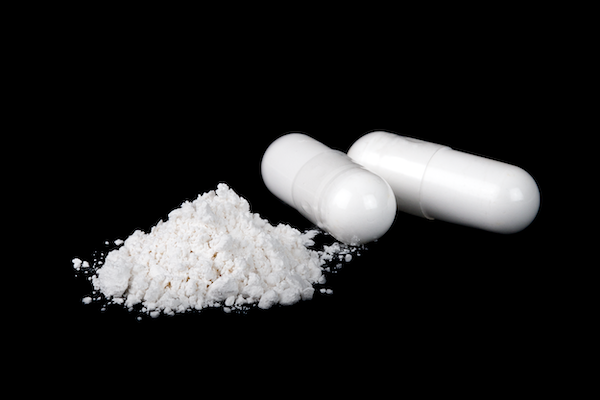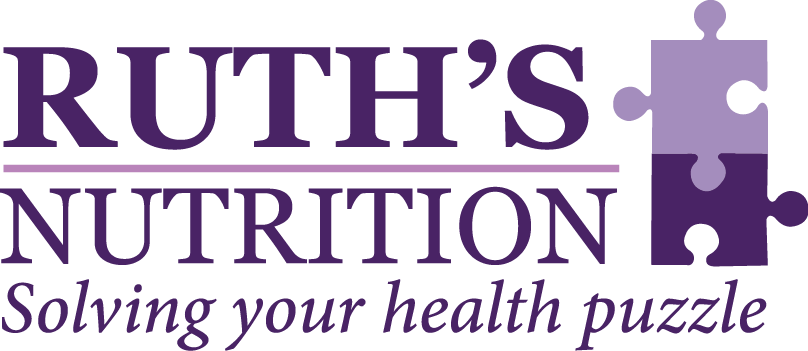Aids in gut health, muscle recovery, chemotherapy recovery, & more!

If you’ve heard of the amino acid L-glutamine, you probably associate it with improved gut health, especially for people with irritable bowel syndrome. But this semi-essential amino acid has many other practical uses, especially as we age.
WebMd reports: “Glutamine is taken by mouth for sickle cell disease, to improve nutrition and help people recover from surgery, injuries, burns, bone marrow transplant, complications of HIV/AIDS, radiation, and cancer chemotherapy, and for many other uses. Glutamine is given intravenously (by IV) for improving recovery after surgery and other conditions.”
Gut Health
L-glutamine is found all over the body, but about 30% of it is used in the intestines, because it’s a vital nutrient for gut tissue to rebuild and repair. L-glutamine depletion can be a marker for poor gut health. Studies show it can reduce intestinal inflammation and help people recover from food sensitivities. It also has been shown to decrease intestinal permeability (leaky gut), while also helping to heal ulcers. It can be helpful for not only IBS and ulcers, but also Crohn’s disease, ulcerative colitis, and diverticulitis. In a study of obese patients, supplementing with L-glutamine for two weeks shifted gut microbiota to increase counts of beneficial bacteria while lowering counts of pathogenic bacteria.
All of the above actions are particularly helpful for the elderly, when gut function tends to deteriorate, or for cancer patients receiving chemotherapy that can damage the gut lining. Taking L-glutamine on a regular basis can improve conditions for both.
Muscle Recovery
In addition to improving gut health, L-glutamine also can speed muscle recovery. This is obviously beneficial for athletes, but it’s especially helpful as we age and muscle stamina declines.
Studies show that it both reduces fatigue and muscle soreness following exercise. Again, keep in mind this applies to both athletes and ordinary people. If you’re older and you spend a day working hard in the garden, the next day can be brutal with aches and pains and stiffness. Taking a dose of L-glutamine before and after you stop activities, can make a world of difference in mobility and pain the next day.
Blood Glucose & Weight Loss
L-glutamine helps suppress insulin levels and stabilize blood glucose, making it helpful for improving insulin resistance and diabetes. In a small 2015 study, 66 patients with type II diabetes were given 10 grams of L-glutamine powder three times a day. After six weeks, patients had markedly improved cardiovascular risk factors and improved body condition, reducing both belly and body fat.
Research shows L-glutamine supplementation can increase HGH (human growth hormone) by 400 percent, which leads to an increased resting metabolic rate. Several small studies in people and animals show taking L-glutamine daily in obese individuals leads to significant weight loss and decreased waist circumference. Researchers speculate that in addition to blood sugar regulation, L-glutamine’s ability to improve the mix of beneficial bacteria in the gut plays a role in weight loss.
Animal studies also show L-glutamine can stop the progression of NAFLD (non-alcoholic fatty liver disease), again, probably through its anti-inflammatory and blood sugar regulating abilities.
Sickle Cell Disease
Sickle Cell Disease is the most common inherited blood disorder, affecting African Americans more than any other race in the United States. It also can affect people from Hispanic, southern European, Middle Eastern, and Asian Indian backgrounds. Studies conclude L-glutamine may reduce the frequency of pain crises and related hospitalizations.
Dosing
L-glutamine can be purchased in both powder and capsule form. Doses range from 1-40 grams daily, depending on the situation. It is best taken on an empty stomach. The powder is relatively tasteless.
REFERENCES



